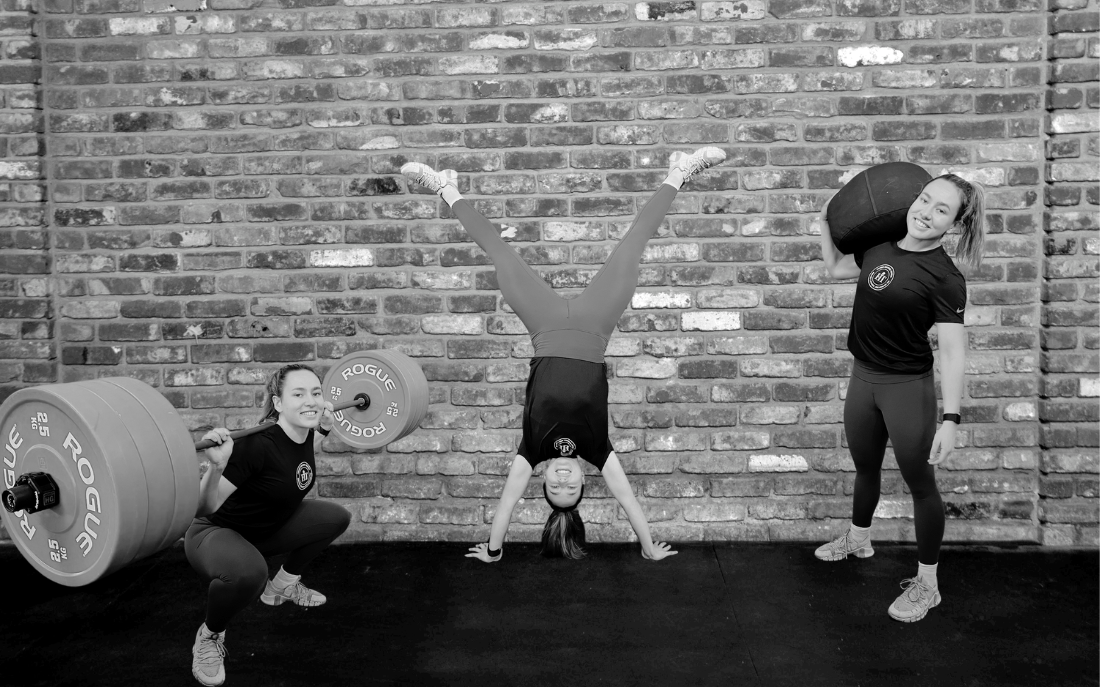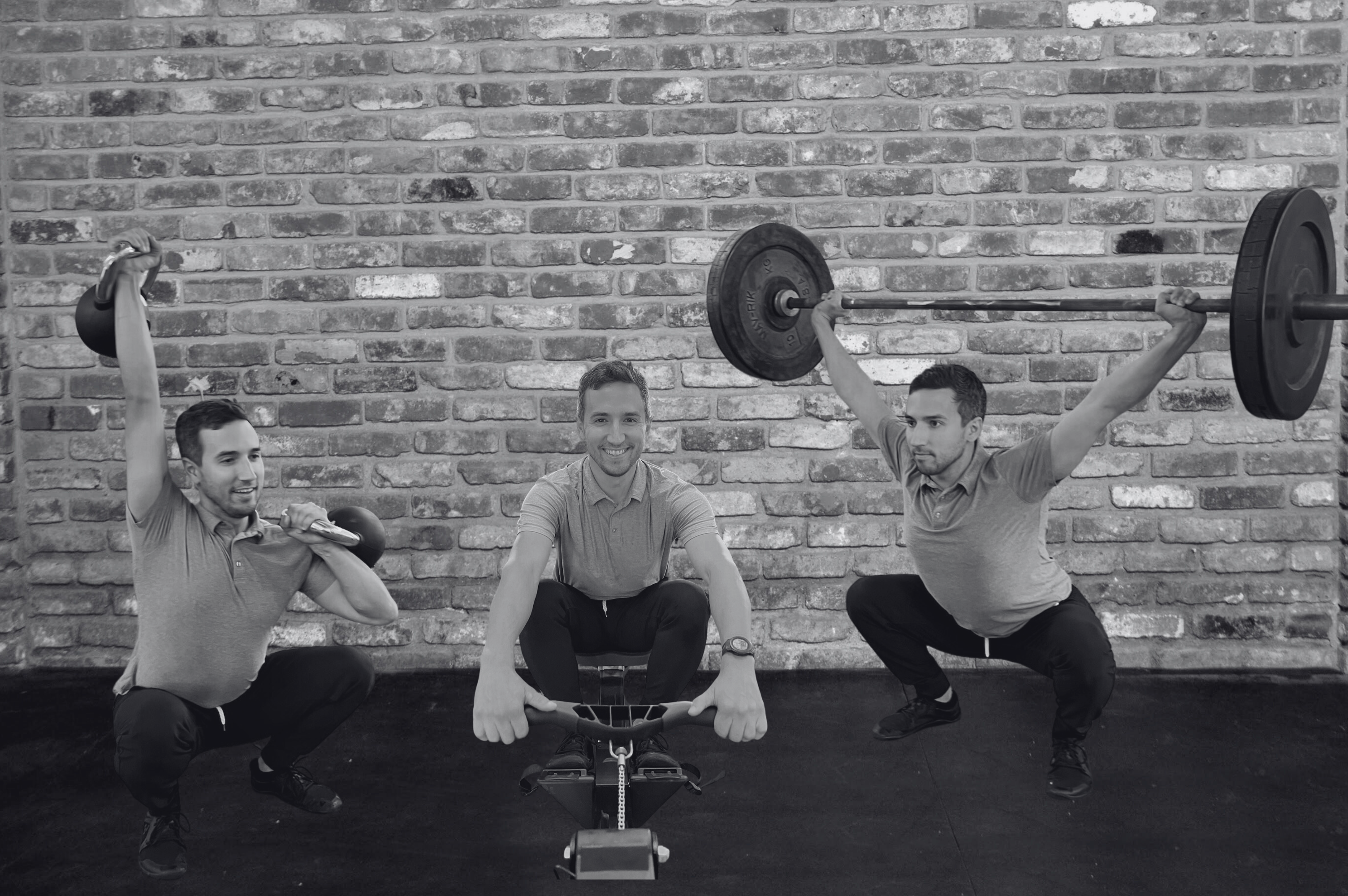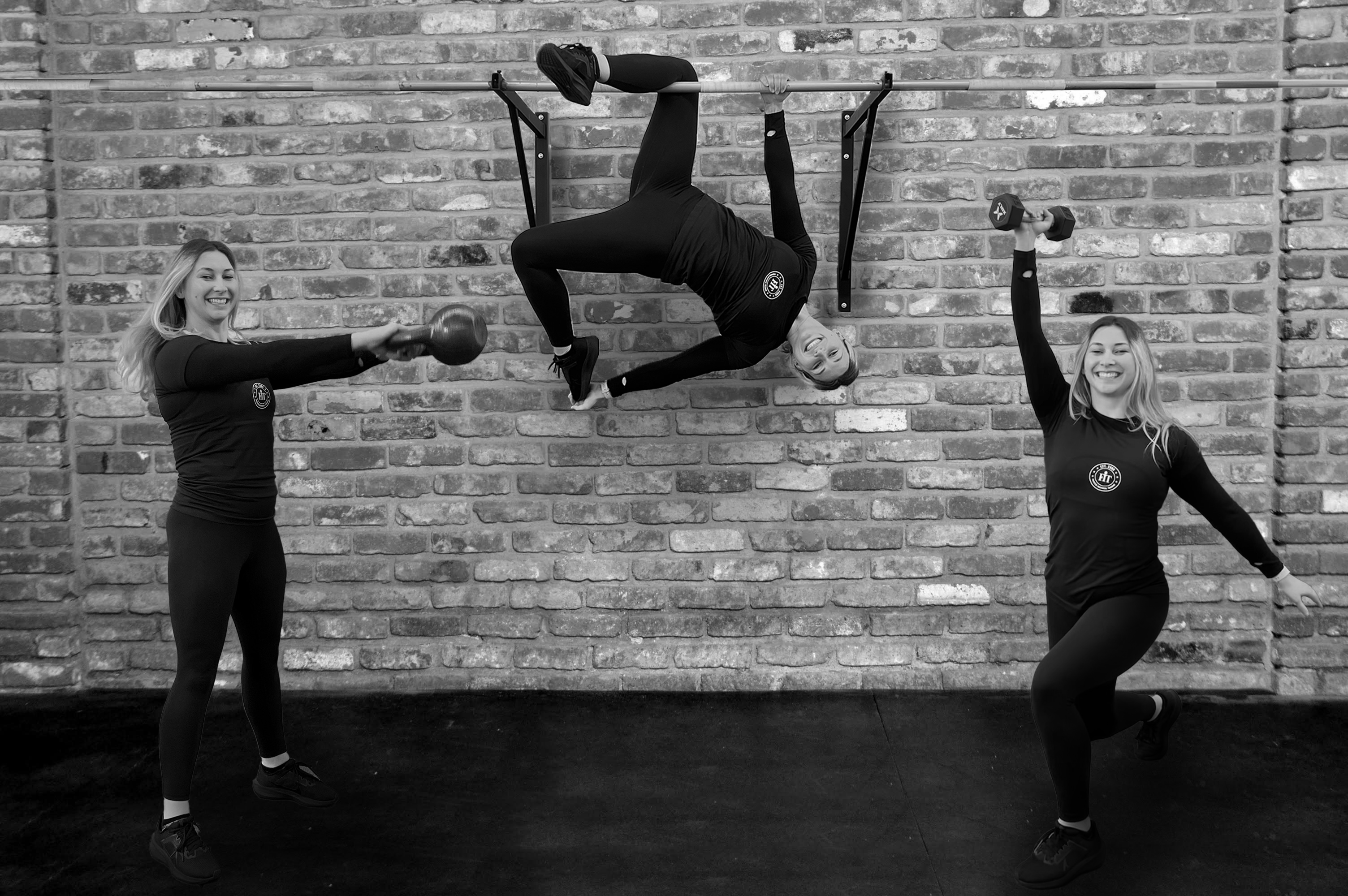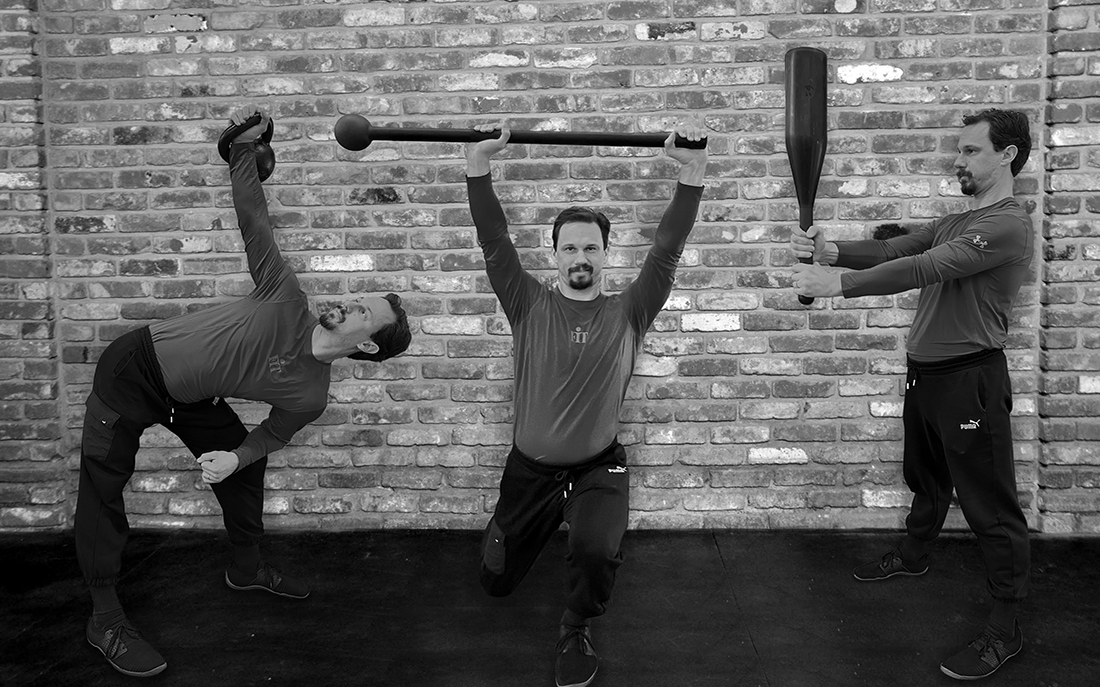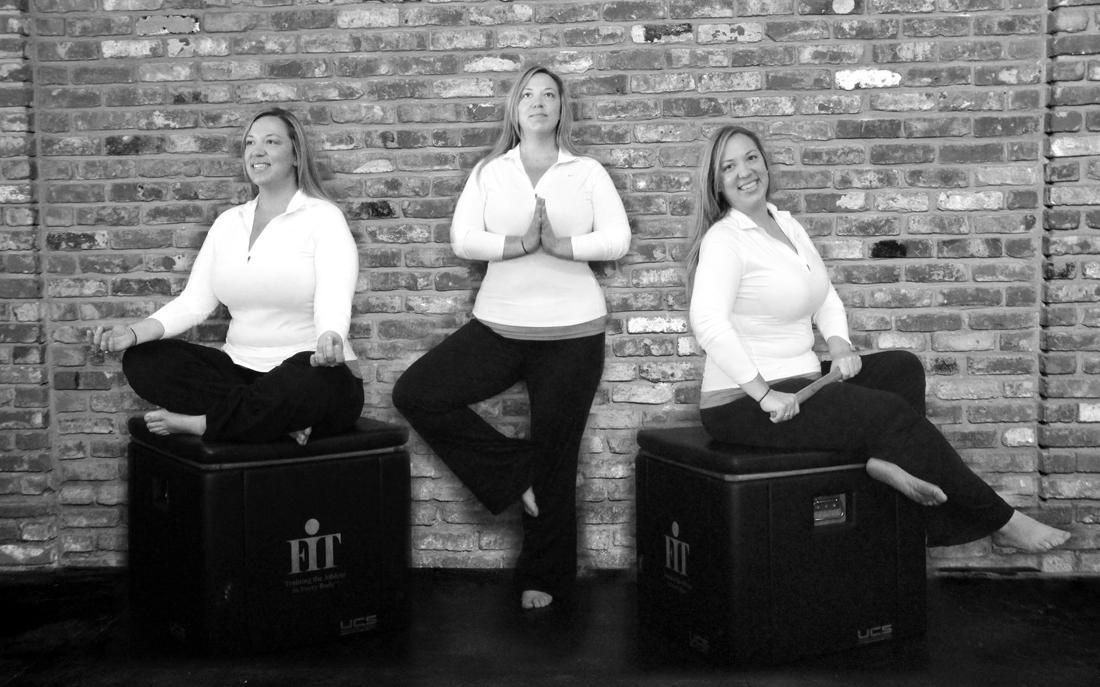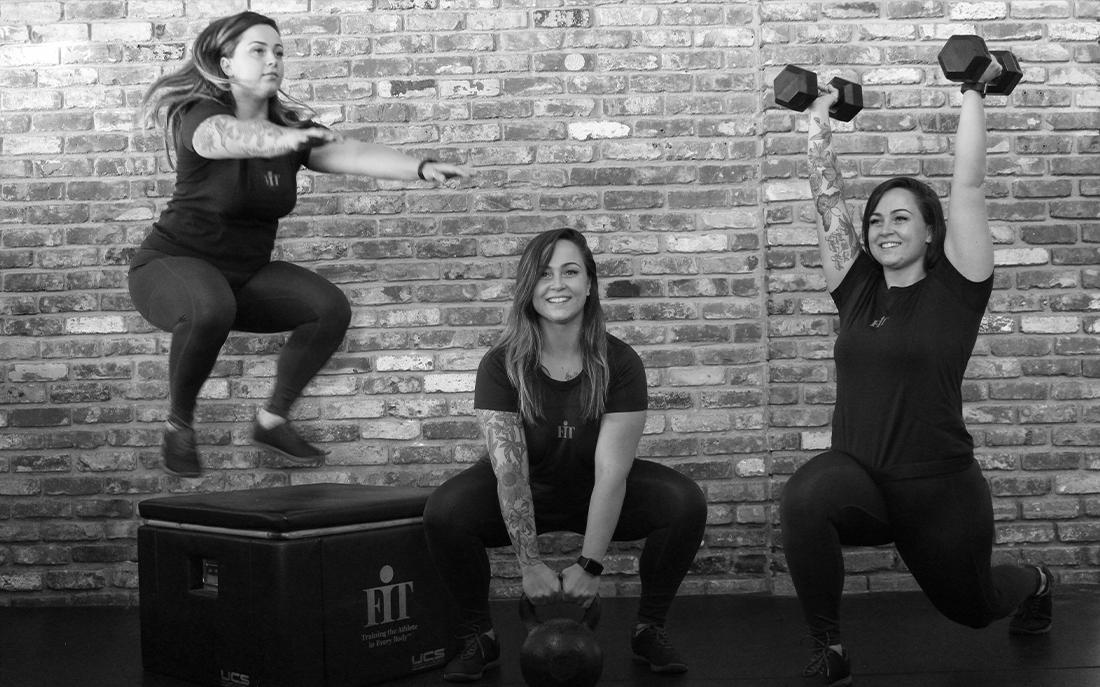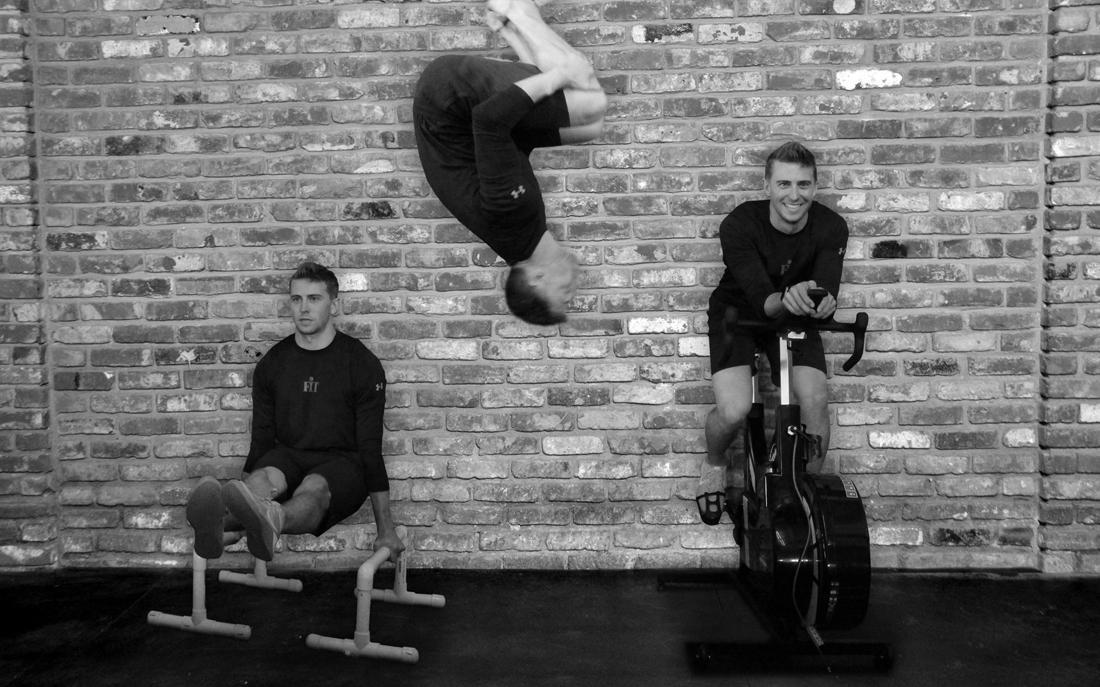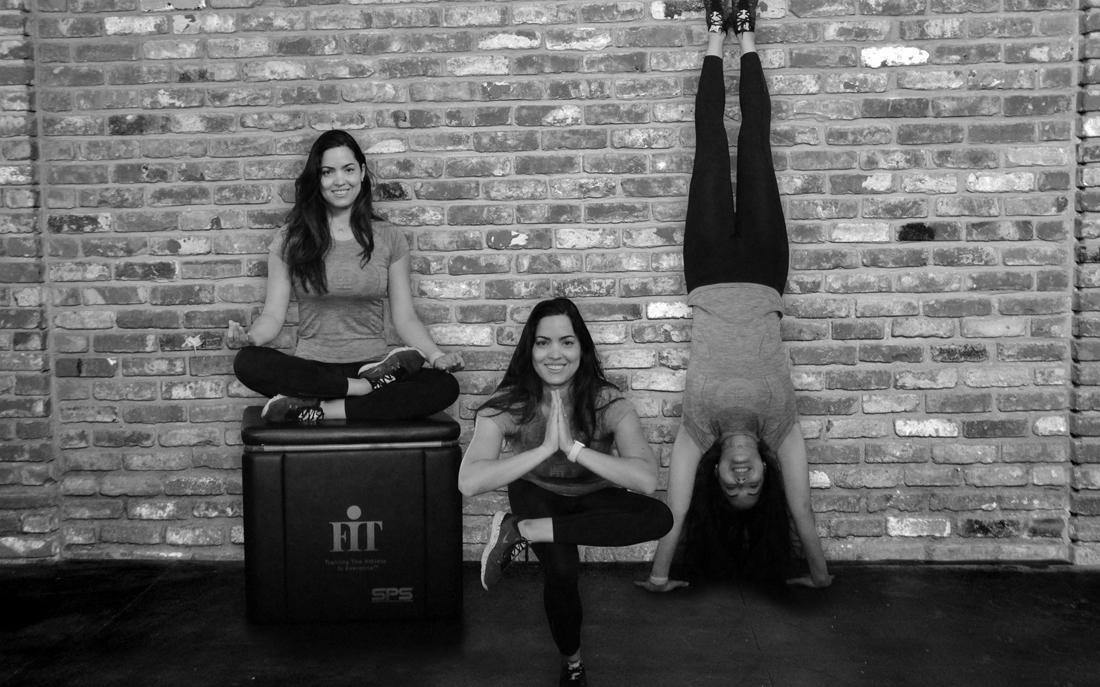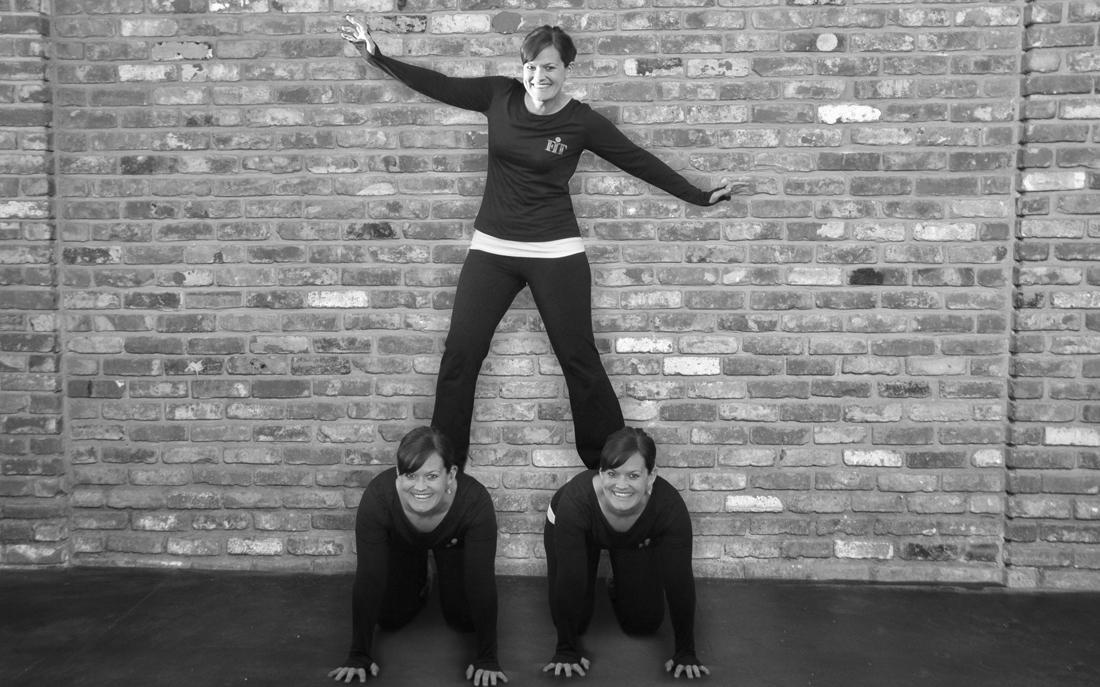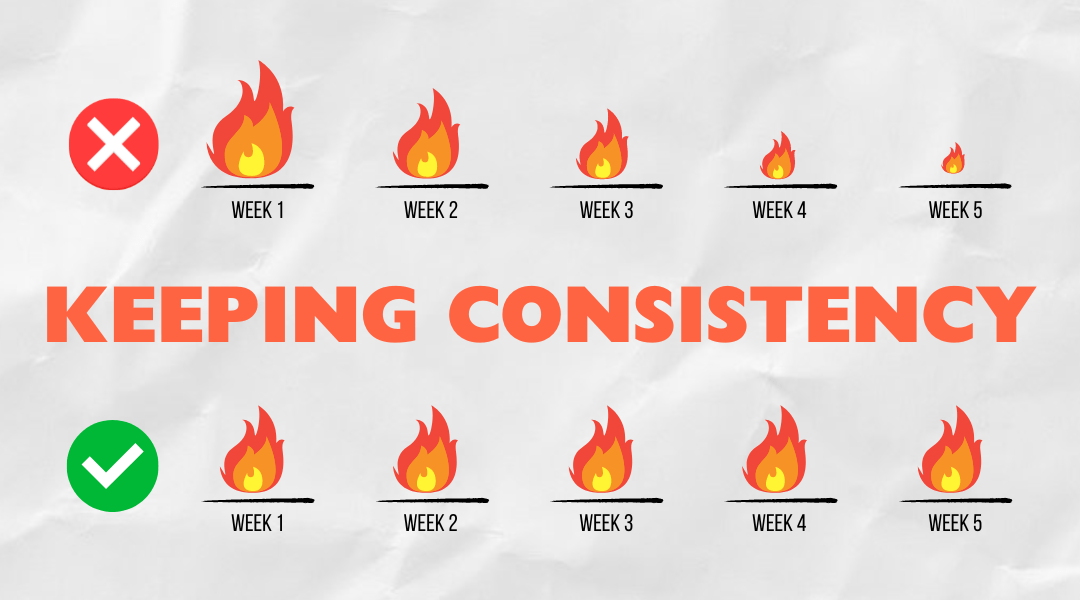Improving health and fitness over the long term.
“Continuous effort – not strength or intelligence – is the key to unlocking our potential”
– Winston S. Churchill
Achieving long-term health and fitness goals hinges on one crucial factor: consistency. Many encounter similar challenges along their journey, but it’s consistency that distinguishes those who succeed over time.
Defining Consistency In Health and Fitness
Consistency in health and fitness involves maintaining physical activity and a healthy lifestyle throughout our lives. It encompasses finding time, motivation, and energy despite the unique barriers we individually face. When considering where consistency is most needed in terms of longevity and health, FiT’s tenets are key:
- Eating Strategy
- Sleep Hygiene
- Exercise Prescription
- Stress Management
- Self Care
Once opportunities for improvement have been identified, it’s important to develop daily habits that are specific and measurable. Getting eight hours of sleep each night, strength training three times a week, and eating 120g of protein a day are all examples of consistent health habits.
It’s not difficult to sustain these habits for a week or two, but it’s the people who build a lifestyle around these habits who, over time, will see significant changes to their health and fitness.
For long term success to occur the focus must be on small incremental improvements over time. This is the essence of consistency. Learning to enjoy the process and work on it day by day.
Benefits of Consistency
It’s well established that consistent exercise has numerous benefits for our health and fitness, but there are many more benefits spanning from mental health to disease risk reduction and better stress management. Just a short list of benefits include.
– Physiological Benefits
Regular exercise helps to control weight, while improving strength, balance, coordination, muscle size and bone density. Regular cardiovascular exercise lowers blood pressure, resting heart rate, improves VO2 Max, increases capillary density and increases HRV.
– Mental Health Benefits
Exercise improves mental health by reducing anxiety, depression and negative mood by improving self-esteem and cognitive function (“Exercise for Mental Health – PMC”).
These benefits are widely known, however it takes time, almost always more than we want, to see improvements.
Impact On Stress
A wonderful and possibly unexpected benefit of consistency in our routines is that it can reduce stress by promoting predictability, efficiency, time management, healthy habits, a sense of control, and emotional stability in daily life. ‘Not having time’ is a frequent excuse but when you have a routine, these habits have an allocated time.
Having a routine can decrease daily stress in several ways:
Predictability and Stability: Knowing what to expect each day provides a sense of stability and reduces uncertainty. When you have a routine, you’re less likely to feel anxious about what comes next because you’ve established a pattern that feels familiar and manageable.
Efficiency: Routines help streamline tasks and activities, making them more efficient. When you know the steps involved in completing a task or achieving a goal, you can focus on executing them rather than worrying about the process itself. This efficiency reduces the feeling of being overwhelmed by tasks.
Time Management: A routine can help you allocate time effectively. By scheduling specific times for different activities, you can prioritize tasks and avoid the last-minute rush. This can prevent the stress of deadlines and feeling like there’s not enough time to complete everything.
Reduction of Decision-Making: Making decisions can be draining, especially when you have to make many throughout the day. A routine minimizes the number of decisions you need to make by establishing predetermined actions for certain times or situations. This conserves mental energy and reduces decision fatigue.
Healthy Habits: Routines often include healthy habits such as regular exercise, sufficient sleep, and structured meal times. These habits contribute to physical well-being, which in turn supports better stress management. When your body is healthier, you are more resilient to stress
Sense of Control: Having a routine gives you a sense of control over your day. Even if unexpected events occur, having a structured routine can provide a framework to navigate these disruptions more calmly.
Emotional Stability: Routine can contribute to emotional stability by providing a sense of accomplishment and satisfaction as you complete tasks according to plan. This can boost your mood and resilience when faced with challenges.
Long-Term Health Impact
According to the World Health Organization (WHO), “Regular physical activity is proven to help prevent and manage noncommunicable diseases such as heart disease, stroke, diabetes and several cancers. It also helps prevent hypertension, maintain healthy body weight and can improve mental health, quality of life and well-being.”
It’s incredible how many benefits there are to regular physical activity. Regular exercise is a no-brainer, however data shows that nearly 1 in 4 American adults are not getting the recommended amount of 2 resistance training sessions and 150 minutes of aerobic activity per week (“Physical Activity Guidelines for Americans, 2nd edition”).
At the same time there are more gyms and fitness studios than ever before. How can this be?
We don’t have an exercise problem, we have a consistency problem.
Barriers To Consistency
Given that the top three barriers to engaging in physical activity across the adult lifespan are time, energy and motivation (Vermaak), it’s important to understand that there are external and internal barriers that influence behavior and the ability to stay consistent.
Every person has unique challenges including physiological, behavioral and environmental factors that can make maintaining consistency stressful and difficult. There is no blanket solution for everyone and solving these problems takes time, energy, focus and determination.
Creating strategies to overcome your unique set of personal barriers is key to adopting lifelong health and fitness habits. Before we can do so we have to identify our unique challenges and prioritize them.
Identifying Barriers to Physical Activity
The CDC has developed a helpful quiz that can help steer the participants’ awareness by targeting strategies to overcome barriers. It is a 21 item quiz assessing the following:
1) lack of time
2) social influence
3) lack of energy
4) lack of willpower
5) fear of injury
6) lack of skill
7) lack of resources
Barriers To Physical Activity Quiz
Physical activity is just one piece of the health optimization puzzle, but similar challenges to consistency will show up in many different areas, especially eating and sleep habits. Let’s discuss some practical strategies we can use each week.
Challenge: Lack of time
- Identify time slots: Monitor your daily activities for a week and identify at least three 30 minute time slots you could use for physical activity.
- Meal planning: Set aside time during the weekend to cook extra protein and cut up veggies for quick meals during the week. Alternatively, make extra protein at dinner to be used for lunches the next day.
- Manage expectations: Many people have the belief that if they can’t exercise for an hour then it’s not worth it. However, in untrained individuals the principal focus should be on making exercise a habit. Exercise intensity recommendations can be highly variable, but tremendous benefits can be gained from doing just 20-30 minutes of resistance or aerobic exercise two to three times a week. As fitness levels increase, more time and intensity can be added to continue progressing.
Challenge: Lack of Energy
- Understand that exercising consistently will help your body produce energy more efficiently by increasing mitochondrial density and improving oxygen circulation. Your body will also get a boost from exercise induced hormonal changes and not to mention – better sleep (Golen and Ricciotti).
- Schedule activities for when you tend to feel the most energetic.
Challenge: Lack of Motivation
- Potentially one of the most overlooked aspects – discover activities and foods that you actually enjoy. If you hate it, forget about doing it long term.
- Set realistic goals for yourself. You should have short term objectives that are achievable and measurable. Small wins are what keep us striving for more.
- Find an accountability buddy. Someone to share your journey with who will be a positive influence in your life, while encouraging you to be consistent.
- Understand no one is motivated all the time. If you value your health and wellness it’s important to schedule and plan healthy activities. If you don’t feel motivated to workout, commit to just 5 minutes or a warmup and you will likely feel better very quickly.
This is just a short list of strategies. You will need to get creative while experimenting, analyzing and adjusting your strategies based on your situation. A trained health professional can guide you in the right direction and provide support along your journey.
Dealing with Setbacks
When it comes to improving health and fitness, setbacks are inevitable and progress is rarely linear. There will be peaks and troughs, but it’s important to acknowledge the setback and keep working at it.
In order to bounce back you may need to ask for help or simply accept responsibility for the setback and make a small change. Eating donuts on the weekend doesn’t mean your whole diet is blown. Likewise skipping a workout doesn’t mean you will lose all your gains.
Try not to get discouraged when you have a setback. Instead, keep a positive mindset and remember that the most consistent people have become really adept at dealing with setbacks.
Maintaining Consistency Long Term
Maintaining consistent long term progress involves focusing on three important objectives:
1) Establishing routines and habits.
2) Tracking progress
3) Being adaptable and flexible with the above.
Each area may require you to experiment with different strategies to maintain consistency over time.
Establishing Routines and Habits
According to researchers at Duke University (Neal et al.), Habits account for about 40% of our daily behaviors, which means that they can be very difficult to change. James Clear offers some very effective strategies in his book Atomic Habits such as:
- Start with an incredibly small habit. Make it so easy that it’s hard to justify not doing it. Instead of trying to work out 4 days a week, start with 1-2 days and see if you can stay consistent. This way you are making consistent progress slowly and sustainably.
- Believe in yourself – Surround yourself with people who believe in you and remind yourself often that you’ve got this.
- Set up your daily routines to be congruent with your objectives. Make movement, hydration, nutrition and sleep a priority, but also easy to do.
- Tracking your progress – There’s no shortage of apps to help you track your progress these days. Choose what works best for you. One percent improvements add up surprisingly fast and knowing the numbers will ensure that you are on track. Whether you are tracking weights, macros or even bone density, seeing your progress will increase motivation and willpower, making it more likely that you will stay consistent with it.
- Flexibility and adaptability – We all know that life can get in the way of the process of reaching our goals and the work it takes to get there. This is why being adaptable to changing circumstances is a super power in our modern lives. There may be times where you have to adjust your goals or your routines and that is okay. Manage your expectations so that you can be flexible, while still focused on your goals.
On the flip side, being too rigid and monotonous in our routines can lead to burnout. People love novelty, so embrace variety in your workouts and nutrition to avoid this. Trying new recipes or exercises can be a great way to increase motivation.
Conclusion
As discussed, consistency is not just important, but foundational to a successful health and fitness program. In the world of training, it is often said that an average exercise program followed consistently produces better results than a superior program followed inconsistently. This principle extends to nutrition, sleep, and other aspects of health. By understanding this, you can alleviate the pressure of perfectionism.
Focus instead on sustaining long-term habits and lifestyle changes. Over time, you will look back on your journey, marvel at your progress, and feel a profound sense of accomplishment and satisfaction. Commit to consistency and embrace the journey toward a healthier and happier version of yourself.
Sources
“Exercise for Mental Health – PMC.” NCBI, https://www.ncbi.nlm.nih.gov/pmc/articles/PMC1470658/. Accessed 11 July 2024.
Golen, Toni, and Hope Ricciotti. “Does exercise really boost energy levels?” Harvard Health, 1 July 2021, https://www.health.harvard.edu/exercise-and-fitness/does-exercise-really-boost-energy-levels. Accessed 11 July 2024.
Neal, David T., et al. “Habits – A Repeat Performance.” Wayback Machine, 2006, https://web.archive.org/web/20110526144503/http://dornsife.usc.edu/wendywood/research/documents/Neal.Wood.Quinn.2006.pdf. Accessed 06 20 2024.
“Physical Activity Guidelines for Americans, 2nd edition.” Office of Disease Prevention and Health Promotion, https://health.gov/sites/default/files/2019-09/Physical_Activity_Guidelines_2nd_edition.pdf. Accessed 11 July 2024.
Vermaak, Candace. “Barriers to Physical Activity.” Physiopedia, https://www.physio-pedia.com/Barriers_to_Physical_Activity. Accessed 11 July 2024.
Sign up for FiT’s Health Optimization and Wellness Blog
![]() 600 Rancho Shopping Center, Los Altos CA 94024. | 650-947-9831
600 Rancho Shopping Center, Los Altos CA 94024. | 650-947-9831
Get Directions | Email Us | Jobs | Follow us:
